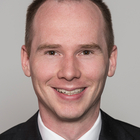Briefing Paper
Post 2015: what it means for the United Nations development system
Wennubst, Pio / Timo Casjen MahnBriefing Paper (13/2013)
Bonn: German Development Institute / Deutsches Institut für Entwicklungspolitik (DIE)
No longer are development agendas framed primarily bytraditional aid structures: the post-2015 agenda will involve not just governments, but also the private sector, civil society and individuals. The High-Level Panel on the Post-2015 Development Agenda has coined the phrase of a “global partnership” in this respect. To prepare the ground for implementation of the new agenda, the member states of the United Nations (UN) will be called upon to agree the implications for the UN Development System. What does the post-2015 agenda mean for the UN Development System?
The timing for this debate is right. With several reform processes of the UN Development System taking place simultaneously, there is strong momentum for change:
- The post-2015 agenda that is to follow the Millennium Development Goals (MDGs)– linked with the Sustainable Development Goals (SDGs) to be negotiated through an inter-governmental process – will bring about a new sense of purpose and direction within the UN Development System.
- The follow-up to the UN Conference on Sustainable Development (“Rio+20”) will see the creation of a High Level Political Forum (HLPF) to permanently anchor the debates at the political level.
- The Economic and Social Council (ECOSOC) of the UN is set to revise its functions and structures as part of a long-term reform process.
However, these processes are currently segregated and not directly linked to each other. In order to result in a coherent overall outcome, it therefore seems necessary to provide a closer linkage under a uniting and coherent “vision” for the United Nations Development System. This vision should have three dimensions:
- What: Using the HLPF, member states should translate the post-2015 agenda into a system-wide mandate for the UN Development System that details its purpose as a complement to other actors.
- How: The post-2015 agenda is about the recognition that development challenges such as population growth, economic inequality, water shortages and volatile financial markets are increasingly interrelated and global. A set of reforms should therefore be undertaken in conjunction with the elaboration of the future mandate so that the UN Development System can fulfil its mandate supported by a cohesive institutional organisation.
- Means: Finally, there is a need to initiate discussions about the future funding of the UN Development System in line with the broadened mandate and reformed structure. What the post-2015 agenda requires is a dramatic shift in perspective to go “beyond aid”.
In order to build up the necessary support and momentum for substantial reforms of a funding structure “beyond aid”, stakeholders will need a clear understanding of the specific role that the UN Development System would be playing in the post-2015 agenda, and assurances that the UN Development System “House” is well prepared to deliver. A sequenced approach meets these concerns.
Contact
Cornelia Hornschild
Publication Coordinator
E-mail Cornelia.Hornschild@idos-research.de
Phone +49 (0)228 94927-135
Fax +49 (0)228 94927-130
Alexandra Fante
Librarian/ Open Access Coordinator
E-Mail Alexandra.Fante@idos-research.de
Telefon +49 (0)228 94927-321
Fax +49 (0)228 94927-130



![[Translate to English:] Photo: Alexandra Fante, Bibliothekarin/Open Access-Koordinatorin](/fileadmin/_processed_/f/0/csm__c_Deutsches-Institut-fuer-Entwicklungspolitik_Fante_94ce4fa1ba.jpg)